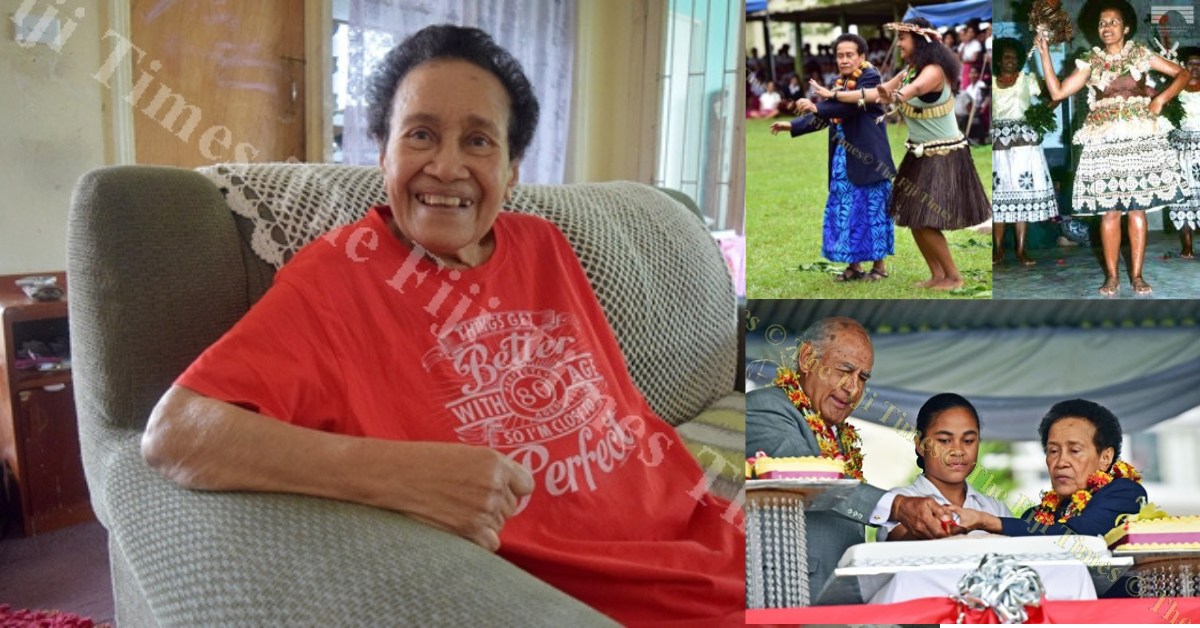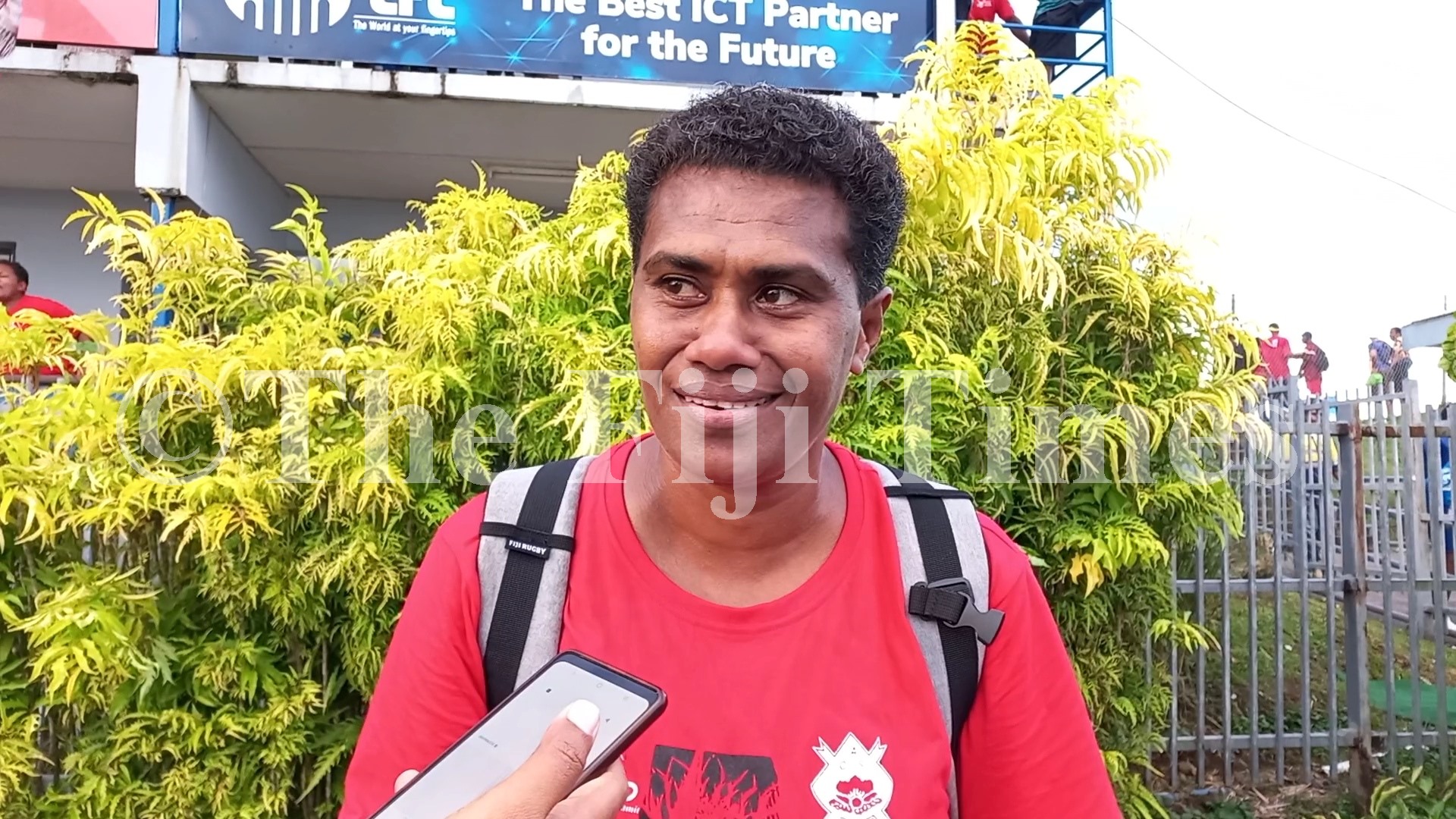Extracted from Wikipedia and Fiji Sun Online
Taufa Vakatale was, first to achieve many, starting with being a pioneer student of Adi Cakobau School and doing the same in education, government & politics.
She is probably the most notable of ACSOG leaders having been the first iTaukei woman to be principal of Adi Cakobau School and later she became the first woman deputy Prime Minister.
She is now 75 years old but she says she thinks like a 40-year-old. Ms Vakatale travels extensively. She recently returned from a trip to the United States of America visiting family members.
Her first taste of politics came in 1992 after retiring from the civil service in 1990. The 1992 elections were the first election held after the two coups in 1987. Ms Vakatale stood in her province of Lomaiviti under the Soqosoqo ni Vakavulewa ni Taukei (SVT) ticket.
“I saw myself as a minister and I told my constituency that I was ministerial material. I was very confident from the start that I would win.”
She won convincingly. In 1994 she stood in the same constituency and again won by a large margin. Her running mate was Joeli Kalou who polled in second.
The 1999 elections, however, became a different ball game.
Ms Vakatale said: “By that time SVT was a dirty name because the iTaukei thought that we had sold out the Fijian cause. Similar sentiments were directed towards the National Federation Party whom they had teamed up with.
“I stood alongside James Raghwan Raman from the NFP. We were top people at the time, Mr Raman was a good debater but we both lost. “
The pair stood in the Samabula Tamavua Open constituency.
In recent times, Ms Vakatale was part of the Fiji Constitutional Commission led by Professor Yash Ghai.
Here are the thoughts of a small yet courageous and gifted lady who has stamped her mark in Fiji’s educational and political history.
Progress to September 2014
“I am looking forward to the elections not because I’m going to take part but just to see people particularly the young people now that it’s the first time for most of them to vote. I’m just excited to see their reactions.
“But politics is politics, it won’t really change much. There’ll be good politicians and bad politicians.
“I’m looking forward to getting the constitution accepted, good or bad. It will be the first democratically established government after so many years.
“If they are people of integrity, no matter what kind of politics is in place they will always do what they think is right,” Ms Vakatale said.
Women politicians
“I don’t think that there should be a reserved percentage of women in Parliament or in a political party. It would mean forcing the issue on the population.
“Maybe recommend that each political party have at least two or three women in their party to stand. It should not be reserved,” she said.
Ms Vakatale added that in the general population women control at least 50 per cent of the voting public and sometimes it’s the women themselves who don’t help.
In 1994 the former Minister for Education said: “Women clamour for equality with men and will lobby for their rights and fight instances of discrimination against women. Yet when the crunch comes and women are required to take up active political roles, very few have the courage to offer themselves.”
Lead with integrity
Ms Vakatale recalls her dismissal as Minister because of what she believed was right.
“I was dismissed and became a backbencher because I marched against my party for what I believed was wrong – the nuclear testing on Murorua Atoll in French Polynesia.
“For me, my survival was not important, the survival of the people of the Pacific was more important to me. So you’ve got to have integrity. It doesn’t really matter if the person sitting next to you has a different view and is calling you a ‘liumuri.’ Simply do what you believe is right,” she said.
Working with Government
“When I’m asked by the current government to do things, I do it. If I don’t believe in what they are doing, then I don’t.
“I respect them too for respecting my wishes.”
But often her friends, those she considers highly intelligent people who tend to think that she has sold out to the Government.
“But what matter are the people who are really important to me they know that I am not.”
iTaukei supremacy
“I don’t believe in Fijian (iTaukei)supremacy, even though I had attended a Fijian school I was against the emphasis on Fijian rights and Fijians this and that.”
She acknowledged that the SVT party strongly advocated such issues and she had reservations for most of their policies.
Ms Vakatale said Sitiveni Rabuka was a good leader.
“He wasn’t like all my colleagues with SVT. All were out for indigenous Fijian paramouncy and they were all out for that. I didn’t think that was right. People now are more accepting.”
She added that this attitudinal change has been brought about by a government who doesn’t allow much debate.
“I agree with the changes like calling everyone Fijian, but not so much the way it was brought about. But I suppose it was the only way to go about it.”
Former civil servants in SODELPA
Ms Vakatale said their involvement reestablishes SODELPA as an iTaukei party.
“These senior civil servants were top people. People forget they were the government of Alliance, SVT and SDL. You change politicians but you don’t change senior civil servants.
“As senior civil servants they had a lot of power and had the ability to influence their ministers
“They have ability to delay things if they want. Governments come and go but they go on.”
Ms Vakatale pointed out Anare Jale, Isireli Koyamaibole and Pio Tabaiwalu as hard workers and helpful.
“They will strengthen SODELPA in leadership and caliber of people. But for the country as a whole, I would have liked marrying of the races.”
Chiefly influence
“They still have a way in Fijian politics. It’s ingrained in us to support our chiefs. As a people I think it’s a good thing that we don’t let our heritage down.
“Chiefs hold more political power than what we have in politics. In politics you go for one, two terms and come out. Chiefs stay and they go on. That’s important and the need to be identified with our chiefs, especially those in leadership,” Ms Vakatale said.
“Major chiefs like the Roko Tui Dreketi, I think a lot of people still hold allegiance to her as an institution, and when she speaks out, she is fighting for her people and that I think is commendable.
“But from our consultations around the country people prefer to have their chiefs with no political affiliations.”
Proposed party led by PM
“I think the Prime Minister should form his party soon. He seems to be leaving it very late but he is probably very confident that he is going to get the support.
“If they get in, at least they have continuity and have the opportunity to hear the views of those who in opposition – so it might be a good thing. I just hope that if they don’t win, we won’t have another one….”
From Wikipedia, the free encyclopedia
Mereia Taufa Vakatale, O.F. (born 1938) is a Fijian former educator and politician. She served in the Cabinet of Fiji under the Soqosoqo ni Vakavulewa ni Taukei (SVT) during 1993–1995 and 1997–1999. In 1997, she became Fiji’s first female Deputy Prime Minister.
Taufa Vakatale was born in 1938 on Batiki in the Lomaiviti Islands. Her parents were Alanieta Naucukidi and Mosese Vakatale, a Methodist minister. She attended primary school on Gau Island before enrolling in the first cohort of students at Adi Cakobau School, a government boarding school for girls on Fiji’s main island, Viti Levu, in 1948. She received the New Zealand School Certificate in 1954. Three years later, she became the first indigenous Fijian girl to pass the New Zealand University Entrance examination and upon graduating from the University of Auckland in 1963, the first Fijian woman to receive a Bachelor of Arts degree.
Vakatale returned to her boarding school, Adi Cakobau, as a teacher. She was the school principal from 1973 from 1979, making her the first indigenous Fijian woman to serve as a secondary school principal. She left the school to become a diplomat in 1980 and became the first indigenous Fijian woman appointed as a deputy high commissioner. She held various positions in the civil service, particularly in the field of education, and became Chief Education Officer in 1983.
Vakatale left the civil service in 1990. She ran for election in 1992 under the Soqosoqo ni Vakavulewa ni Taukei (SVT) party ticket; she was elected and won a bid for re-election in 1994. Her win in 1992 made her the first Fijian woman elected as a cabinet minister. She was Minister of Education, Science and Technology from 1993 to 1995, but she was dismissed from her cabinet post in 1995 because, in contrast to the SVT’s policies, she opposed French nuclear weapons testing in Moruroa Atoll in French Polynesia.
In 1997, she was appointed Deputy Prime Minister and Minister of Education and Technology and in 1999 she became the first female president of the SVT. Vakatale resigned from the SVT in 2000 in opposition to the coup d’état by i-Taukei nationalists which had removed then-Prime Minister Mahendra Chaudhry from power.
After retiring from politics, Vakatale worked in the private education sector. She was made an Officer of the Order of Fiji in 1996 and was awarded an honorary Doctor of Letters degree by the University of St Andrews in 2009. In 2012, she was selected as a member of the Constitutional Commissionheaded by Yash Ghai.






